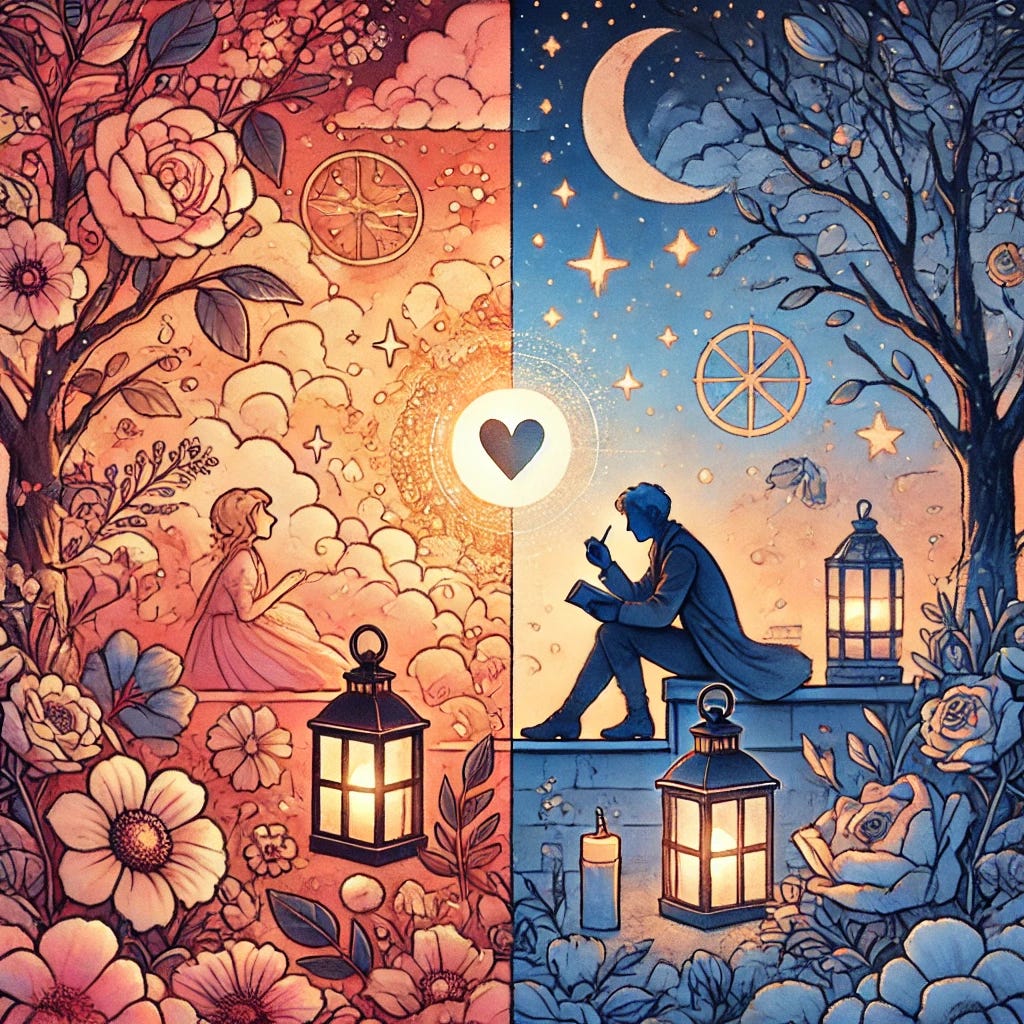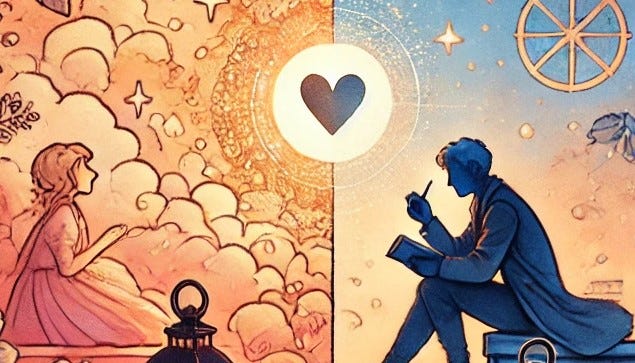When I was a little girl, I was taught to see the best in people. However, I wasn’t taught how to balance it by seeing people for who they are. And so for a long time it messed with my ability to manage my expectations.
Eventually I learned to hold my expectations more lightly, but even today I catch myself out in lingering disappointment. These days I seek the cause within myself, rather than the other, as once again I catch myself believing a meeting would turn out one way, when, in hindsight, I should have known it would turn out in another.
In order to ‘see the best in people’, I had learned to disable my inner Reality Checker.
And so upcoming events end up being hijacked by an inner Romanticist, a Pollyannaish optimist that believes everyone will always want to show up with their best behaviour. Except, I would see that ‘best’ purely from my romanticized perspective, rather than common sense. When that happens, a sense of failure neatly fills the gap between expectation and reality.
Conversely, I have a dear friend who protects herself from disappointment by doing the complete opposite. Where I lose myself in pre-emptive positive stinking, she catastrophises. In her case it’s the Realist that dominates. This year, aware of this quirk in her psychological make-up, she decided to make a list of all the things she expected to be awful this Christmas. Not as a Scrooge-like, bah humbug exercise, but to prove to her inner Realist that things never work out as bad as she thinks.
Comparing post holiday-season notes, we laugh, trying to assess which one of us gives herself the worst deal. I spend the days after an event having to gentle my disappointed Romanticist, while she wastes time in negative pre-emptive catastrophising.
If only we were one person, then we would get the balance right.
But there is a reason why Romance and Realism are, at first sight at least, not natural bedfellows.
Practising ‘Romantic Realism’ or, if you like, ‘Realistic Romanticism’ demands an investment of psychic energy and internal honesty. It asks us to be real while also holding out hope. It asks that we have the generosity to allow the players in our drama to show up as they are, not as we expect, whether that expectation is good or bad.
Seeing the best in others, as I was taught, in reality means seeing and accepting both their Light and their Dark, and all the shades of grey that lie in between. And with that loving but realistic assessment, adjust our expectations accordingly. That allows us to keep an open mind so that we don’t miss the unexpected twinkling gifts that they were capable and willing to bring.
And finally, if someone close to you, seen in the light of Romantic Realism, is no longer someone you can tolerate or need in your life, then be brave and let them go. Stop projecting a romaticized version on them that they are not capable of being. And free both yourself and them from the demands of a rigid scriptwriter who forgets to give her the actors their lines.
Or leave a comment
And if this topic interests you, but you want to talk more privately about your experiences, then contact me directly: I offer a free half hour trial session as well as a discounted package of ten sessions for the cost of nine.









